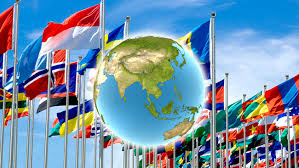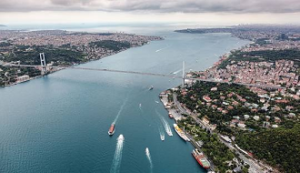
Arquivo para a ‘Politics’ Categoria
Language, being and the infinite
Language and being are ontologically linked, that is to say, language is a mode of being that Heidegger calls Dasein and presents itself in the fundamental constitution of being-in-the-world.
that is to say, language is a mode of being that Heidegger calls Dasein and presents itself in the fundamental constitution of being-in-the-world.
However, the limits of language are not limits for being, it is the expression of the communication of our connection with the other and with the world, the characteristic mark of language is the sign (or the sign as semiotics conceptualizes it) because it is what will identify knowledge, it shows it the object and grants it a “re-presentation” (here to recall the concept of “present).
On the other hand, the ethicality as objectivity (this is a Hegelian concept that Heidegger uses) of the representative (which is why he uses “re-”) gives it a present validity of the object, so it is the word that produces knowledge that grants a truth of correction of representation, so it has a logical truth and thus other corrections will be necessary, but all finite in time.
The limits of representation lie in listening attentively and silently to the other of the si-impersonal that we all bring into our relationships, and it is by listening appropriately to the coexistent other that the being-there comes to understand what really matters in the relationship with itself and with the other.
In his work “The Road to Language” (2003), written in the 1950s (Heidegger died in 1976), he states that speaking is not the same as saying, because you can speak a lot without saying anything; on the other hand, by keeping quiet and being silent, someone can say a lot, which means that speaking can be just showing, appearing, seeing and no longer listening.
There is nothing more important than in media periods when we want to listen to public parlors and we don’t listen to the other in our inner silence, the Greeks and phenomenology call it epoché, it is so important that no really true philosophy or religion can refrain from this resource, so we have an empty philosophy, thinkers with full bellies and vain.
The step to go beyond, to extend our knowledge beyond worldly representation is to unveil the world, since its re-revelation is only a new veiling, unveiling makes us go beyond to reach what for present objectivity seems impossible, it is neither about wealth, nor utilitarian goods, nor public visibility, but an encounter with Being.
In his Letter on Humanism (1949), in which he analyzes his turning point during the 1930s and early 1940s, he states that his thought was directed towards the relationship of being to the essence of man, but it is this Heidegger that Peter Sloterdijk questions because he only saw one side of the process, the forgetting of being, and left unthought its properly domesticating character, in his book: “Rules for the human park” in which he questions bioengineering, technology that puts the humanitarian question in crisis again.
Reaching beyond human limits has been a challenge for the process of civilization, its is divine.
Heidegger, Martin. (2003) A caminho da linguagem. Tradução de Marcia Sá Cavalcante Schuback. Brazil, Petrópolis, RJ: Vozes; Bragança Paulista, SP: Editora Universitária São Francisco.
The horrors of war
The elections in Germany, in which the debates were polarized in a way never thought possible in that country after the horrors of World War II, made many analysts think that we are already a little distant from that sad moment in the history of civilization and perhaps we no longer know how to understand the horrors of war, no matter the narrative, every war is always some kind of looting, some level of genocide and what dies first is the truth.
debates were polarized in a way never thought possible in that country after the horrors of World War II, made many analysts think that we are already a little distant from that sad moment in the history of civilization and perhaps we no longer know how to understand the horrors of war, no matter the narrative, every war is always some kind of looting, some level of genocide and what dies first is the truth.
Despite attempts and proposals, the conflict in Eastern Europe seems to be escalating to ever more dangerous limits and entanglements of antagonistic forces. The attempt at a ceasefire has not only failed, but has also shown interests that differ from those that are declared.
The ceasefire in the Middle East, too, after a first cycle when it looked like it might enter a second phase, has once again escalated, with the Israeli army claiming last Tuesday (18/03) to be carrying out “extensive attacks” and the Hamas-run Gaza health ministry saying that 400 Palestinians were injured in the attacks.
In Eastern Europe, even though the US proposals for an initial ceasefire have been accepted, both the Russian army has carried out drone attacks on Kiev and Ukraine’s energy sources, and Ukraine has launched attacks on a nuclear weapons base in the Engels region (Saratov Oblast), as well as attacks on the capital Moscow, making any ceasefire impossible at the moment.
According to an analysis by CNN on Saturday, May 22, what Russia wants is much, much bigger than the end of Ukraine as an independent state, it wants NATO to return to the size it was in the Soviet period, countries that are now part of NATO were once in the Soviet-Russian sphere.
There is no strong view that peace is better than war, that sitting down at the table and having a diplomatic debate prevents the deaths of thousands of innocent civilians and stops fueling a global crisis that, for obvious reasons, affects life, economic balance and fraternal spirit.
There is still a long way to go in the direction of peace, to disarm the spirit not only in the countries at war, but among those who in the shadows feed a genocidal spirit of hatred and conflict, forgiveness and concord need to come from every person who wants a peaceful world.
Work, action and contemplation
Hannah Arendt considered that labor, work and action are the three spheres of human life that make up the “vita activa”, a thought that we have placed around Byung-Chul Han’s essay, which Arendt also uses to complement the Vita Contemplativa.
action are the three spheres of human life that make up the “vita activa”, a thought that we have placed around Byung-Chul Han’s essay, which Arendt also uses to complement the Vita Contemplativa.
It is not characteristic of modern man to think in this way, and this has put human thought and even scientific and religious thought at a standstill. Narratives arise as a consequence and not as a cause of this, it is through the fragmentation of human activities that the interpretation of reality becomes subject to a limited worldview.
Labor ensures the biological survival of the individual and the species (Arendt, 1995) while work, although it doesn’t individualize man, establishes a relationship with objects and with the transformation of nature, and allows him, and this is important, to demonstrate his craftsmanship and inventiveness (Arendt, 1995), but craftsmanship and inventiveness are not separate from thought, because there man conceives of his relationship with nature as a whole.
It was industrial work that destroyed this idea of the whole between work, labor and action, but noticing that artisanal work already included a contemplative vision, “Perché non parli?” said Michelangelo when completing his work “Moses”, meaning “why not speak?” (photo).
A little noticed detail, but certainly conceived by Michelangelo when he made his work, is the support of his right arm on the tablets of the law, we would say a first biblical codex, since the Torah was a scroll, and if compared to the statue of the Greek thinker, he is resting his head on his right arm, Auguste Rodin made his version around 1880.
Thus, work, labor and action can be united with the idea of contemplation, if we think of it as the conception of a previous thinker and included in the object, in this way we reunite and re-signify work and labor, no longer as an alienated attitude, but as an ontic Being.
Therefore, human work and its labor must be united with the ontological idea of Being, and it also means an act of love for humanity, for the Other and for the one who will use, conceive or just contemplate the action of labor.
Arendt, H. (1995). A condição humana. 7th. ed. Brazil, Rio de Janeiro: Forense Universitária.
Psychopolitics and authoritarianism
The contemporary view of authority is rooted in the idea of the power of force, of money, of authoritarianism, of the manipulation of justice and public bodies in favor of the state, but all this authority is an authority that passes away as great empires did.
in the idea of the power of force, of money, of authoritarianism, of the manipulation of justice and public bodies in favor of the state, but all this authority is an authority that passes away as great empires did.
The Korean-German philosopher Byung-Chul Han, drawing on various authors: Nietzsche (Will to Power), Hegel (Principles of the Philosophy of Law), Luhmann (The Communication of Power) and his main influence, Heidegger (Being and Time), established the concept of psychopolitics.
The modern techniques of power through narratives that hide the real interests of power, mainly using the new media, is what Han called psychopolitics, which replaces and goes beyond Foucault’s concept of biopolitics.
Starting from Max Weber’s concept, quoting him: “power means the opportunity, within a social relationship, to impose one’s will even against resistance, regardless of what this opportunity is based on” (Han, 2019, p. 22, quoting Weber’s Economy and Society), this author already saw the modern trend of this psychological manipulation.
This approach replaces the concept of “domination” (we’ve already posted something about this here), which is “obedience to an order, which is sociologically ”more precise”, with the concept of a pure game of narratives that change this order according to temporal and social necessity.
The root of the idea of the modern state, different from the Greek one which was the overcoming of power as a sophism of manipulation, pure rhetoric, lies in Hegel: “in the longing for an absence of limits, for an infinitude which, however, would not be infinite power” (pg. 123), and what takes away the idea of the eternal and the transcendent, saying of its true limits is not an unlimited will for power: “Religion is fundamentally profoundly peaceful. It is goodness” (p. 124), but there are those who also see it only as a power, which is Hegelianism.
The biblical idea is the opposite of this arrogance, even if “religious” people use it, because “But it is not so among you; on the contrary, whoever wants to become great among you, let him serve you; and whoever wants to be first among you shall be servant of all” (Mark 10:43), “Blessed are those who hunger and thirst for righteousness, for they shall be filled” (Matthew 5:6), there is no incitement to hatred, violence or the segregation of peoples or races in a good biblical reading.
So is the idea of the little ones, the children and the peaceful ones who are linked to the divine Kingdom.
Han, Byung-Chul. (2018) What is power? NY; Wiley. (citations is 2019 portuguese version)
Lasting peace or truce
No peace that subjugates a nation will be lasting, oppression is always a situation of indignity for a people, but diplomatic negotiation is better than any war, this seems to be a principle for Ukraine today because of the lives lost (photo).
lasting, oppression is always a situation of indignity for a people, but diplomatic negotiation is better than any war, this seems to be a principle for Ukraine today because of the lives lost (photo).
Meanwhile, US Secretary of State Marco Rubio thinks along these lines: “to end this conflict in a lasting and sustainable way” and Putin too has stated a very similar view, since he has the upper hand and has conquered several Ukrainian territories by war and is recovering the Russian region of Kursk.
Peace cannot be the “pax romana”, as we have already analyzed in previous posts, the one that the Roman Empire considered when it dominated a territory, we have also analyzed the financial interests here, Ukraine is rich in rare earths and is also a major grain producer.
Russia stands to gain from the lifting of its financial blockade and the US will want Ukraine’s land, but Europe remains wary of future advances by Russia and NATO.
In the Middle East, Syria seems to be moving towards a constitutional path, a five-year plan proposed by Syria’s interim president Ahmed al Sharaa, and the Islamic State group has also lost its strength completely.
In the south of the Arabian Peninsula, meanwhile, the US is fighting against the Houthis, who are attacking American ships in the Persian Gulf. There too, it is necessary to avoid an escalation that is growing.
Iran denies this, but it is virtually certain from the Shiite position that there is some support for the group in Yemen.
The newspapers report that the Israeli cabinet is preparing to resume negotiations with Hamas, since the first phase ended on March 2. Hamas’ demand is also for a lasting peace and to overcome this current phase surrounded by mistrust.
There, too, we problematize the “pax romana”: without establishing a free territory for the Palestinian people, any agreement will only be a truce, and the war can be resumed at any moment if there is conflict or provocation on either side.
The scenario, although very delicate, is optimistic, diplomatic means are working and international political forces have come out of their immobility, hope is high.
Thinkers with full bellies
Modern society is characterized by an absence of serious developed thought. What is called “critical thinking” is nothing more than the rejection of any thinker who tries to think outside the ideological bubble, or of vulgar and superficial narratives.
of serious developed thought. What is called “critical thinking” is nothing more than the rejection of any thinker who tries to think outside the ideological bubble, or of vulgar and superficial narratives.
They don’t know about the great classical works, even those professed by Kant, Hegel or Marx, deep literature by Zolá, Vitor Hugo, Proust, Balzac, Camus or more current ones like George Orwell, James Joyce, Gabriel Garcia Marques or Jorge Luís Borges, Eurocentric in their shallow knowledge, preferring the contentless criticism of thinkers who challenge all current thinking as fragmentary: Heidegger, Gadamer, Peter Sloterdijk and Byung-Chul Han.
Their bellies are full of food that fills their stomachs, but it’s far from being the kind of food that provides a deep and well-founded critique of current thinking: decadent sociologism, little meditation (read Hannah Arent or Byung-Chul Han on the Vita Contemplativa) and little knowledge of even the late Enlightenment that they profess.
At most, they know Bauman’s liquid and Eurocentric thinking, Foucault’s biopolitics or Jean Jaurès’ revisionism, they don’t know Edgar Morin’s transdisciplinarity (he calls this partial intellectuality blind intelligence), Barsarab Nicolescu’s third-included and the quantum physics revolution (it’s no longer a binary dualism), thought is dated in modernity, and they don’t know its origin in ancient Greece.
It is necessary to deny authors who propose new paradigms so that their narrative, based on authors from the last century, is coherent. At best, they talk about original cultures without knowing the great modern African and Latin sociologists such as Achille Mbembe, Franz Fanon and Anibal Quijano.
The belly is full of a culture that is already outdated, even without the necessary updating and without a complete reading of the works on which the positions are based, the psychopolitics of Byung-Chul Han, the spherology of Peter Sloterdijk (Sphere I: bubles) and the transdisciplinarity of Morin cannot be understood, it is a shallow and incomplete revisionism due to the fragility of the readings.
The easy criticism and consequent narrative are based on the chaotic social and cultural scenario we face, without a complete and radical analysis that escapes the bubbles we are trapped in, that understands and updates thinking beyond idealistic dualism.
In fact, we need a few words and thoughts, but profound ones that are forgotten or dormant: what kind of hope do we have for today’s society? What kind of beliefs do we have that don’t involve power and domination? What kind of science is it that deals with the whole man so that it can also deal with every man? What is our relationship with the Other? (Lévinas, Ricoeur, Buber and others).
Without reading Thomas Aquinas, they will remain readers of only one book, without reading St. Augustine, they will not come out of Manichaeism, because evil is the absence of Love and Forgiveness.
Han, Byung-Chul. (2019) O que é poder? Trad. Gabriel Salvi Philipson. Brazil, Petrópolis, RJ: Vozes.
Sloterdijk, Peter. (2019) Esferas I: Bolhas. Trad. José Oscar de Almeida Marques. Brazil, São Paulo: Estação Liberdade.
Morin, Edgar. (2015) Introdução ao pensamento complexo. Trad. Eliane Lisboa. 5.ed. Brazil, Porto Alegre: Sulina.
Positive signs in the Middle East and negative in Eastern Europe
After the first phase of the negotiations, Hamas spokesman Abdel-Latif Al-Qanoua said on Saturday (08/03) that he sees positive signs in the negotiations for a second phase of the ceasefire with Israel, and 50 former hostages ask Netanyahu to implement a broad agreement on the conflict, Israel and Hamas disagree on the future of the conflict.
spokesman Abdel-Latif Al-Qanoua said on Saturday (08/03) that he sees positive signs in the negotiations for a second phase of the ceasefire with Israel, and 50 former hostages ask Netanyahu to implement a broad agreement on the conflict, Israel and Hamas disagree on the future of the conflict.
European countries, increasingly independent of American opinions, support the plan to rebuild the Gaza Strip. Unfortunately, last night Hamas militants came under heavy Israeli bombardment.
In Eastern Europe, the situation is becoming more and more dramatic, both on the battlefield where Ukraine is threatening to lose more territory. Putin wants to reach the port city of Odessa, which will make the war on the Black Sea more violent, and also to surround Ukrainian troops in their invaded territory in the Kursk region.
Ukraine has suffered huge bombardments, its energy infrastructure is increasingly compromised, Trump has withdrawn his support and now Ukraine no longer has the satellite images that allowed it to monitor the movements of Russian troops.
Although both sides of the conflict talk about ceasefires, the battlefield, the involvement of Europe, in practice, the ferocity of each side only grows and the militarization of Europe frightens any serious analyst, there is a bleak future in this conflict.
In a meeting between Ambassador Linda Thomas-Greenfield, the US representative to the United Nations (UN), and Brazilian Foreign Minister Mauro Vieira, held in Brasilia at the beginning of the month, Linda said that any solution in Eastern Europe must consider support for Ukraine, and this shows America’s good intentions.
The problem is that Russia rejects any concession of territory while Ukraine wants all of its territory back, as we’ve analyzed before there are interests in the region’s rare earth reserves, and this leads to an impasse.
The agreement on the transportation of grain, which passes through the Turkish-controlled Bosporus Strait, met on Friday (07/03) with no conclusions yet, but it is valid until May.
The statement by President Makron of France, who said that Russia was a “revisionist imperialist” referring to the Soviet period, was answered by Putin, who said that France had forgotten what “happened to Napoleon” who lost the war on Russian soil.
The world climate continues to be tense, but there are still efforts to come up with a proposal that will bring the opposing sides to a diplomatic negotiating table.
Pax Romana and conflicts
President Zelensky’s Friday meeting (02/28) with Trump and his vice-president in the “oval office” of the White House was a reaffirmation of Trump’s policy of Pax Romana, where the weakest must yield to the strongest, and also asked for Zelensky’s gratitude to the US, not unlike the policy for the Middle East, the control of the Palestinians by Israel and the US.
and his vice-president in the “oval office” of the White House was a reaffirmation of Trump’s policy of Pax Romana, where the weakest must yield to the strongest, and also asked for Zelensky’s gratitude to the US, not unlike the policy for the Middle East, the control of the Palestinians by Israel and the US.
Zelensky reacted by taking part in the summit in London on Sunday (02/03), reaffirming Europe’s position of support for Zelensky, Prime Minister Keir Starmer of Great Britain stating that it was “a unique moment in a generation for the security of Europe” which fears further advances by Putin on the continent, all countries are militarizing.
The Roman Pax was the mere surrender of its adversaries by force, this is the tactic of both imperialism and colonizations, which are still happening in the contemporary world. After the meeting, Zelensky also met with Giorgia Meloni, Italy’s premier, who said she wanted to build a bridge between Italy and the US and a future conference with the US.
The idea of a new ceasefire agreement in the Middle East (which ended on the 1st) now involves the American proposal for control of the Gaza Strip and Israel has suspended humanitarian.
At the beginning of last week, Turkey’s stance in support of Ukraine came as a surprise, with President Recep Erdogan stating that Ukraine should take part in the negotiations and that Turkey controls the passage of ships through the Bosphorus Strait (photo), through which Russian ships pass on their way to the Black Sea, and that Turkey is also important for peace in the Middle East, where it can be a key player, and that the country is a member of NATO.
The Turkish autocrat also said that he is in favor of the full return of Ukrainian territory: “The return of Crimea to Ukraine is a requirement of international law,” a very difficult point.
The situation is fragile in Ukraine, but Russia needs to demonstrate a real interest in the desire for peace, just as it distrusts NATO, European countries fear a future advance on Europe, already a conflict area like Transnistria in Moldova.
Every war involves some kind of plunder, and the interest is in Ukraine’s rare lands.
Trump has also expressed imperialist interests in Greenland and even territories in Mexico and Canada. Remember that a large part of New Mexico and nearby states once belonged to Mexico (Texas, California and parts of neighboring states). The Guadalupe-Hidalgo agreement of 1848 established the new American border, after several wars following the annexation of Texas in 1821.
It is necessary to establish the rights of peoples and many international treaties already speak of respect for borders and respect for national laws, interferences are always conflictual, we must also remember the stateless peoples (the Kurds and the Palestinians, but there are others).
A new world of solidarity requires a new vision of borders, where emigration is not a crime and each people can live in its own territory and exploit it commercially without wars.
The civilizational malaise
The Burnout Society is also a society that led adults, young people and adolescents to psychiatrists or alternative methods, and to those who have few resources, it led to closed groups with sometimes dubious social conscience.
led adults, young people and adolescents to psychiatrists or alternative methods, and to those who have few resources, it led to closed groups with sometimes dubious social conscience.
The number of mental illnesses in children and adolescents should pay attention to this situation.
It is no coincidence that Freud wrote at the beginning of the last century about this “Civilization’s malaise” (Freud, 1930) the author will not discuss the psychic issue itself, but the distant one between instinctual impulses and civilization, that is, contemporary culture that takes man to his opposite as much as nature and his well-being.
Intolerance to errors, even scientific misunderstanding, the demand for effectiveness in all fields, the lack of empathy and love in everyday life and in particular, of values that are natural and lead to true human asceticism, takes emotional and social conflicts to dangerous limits.
By detecting this evil, Freud himself, the founder of psychiatry, did not take humanity to the couch, and I feel he pointed out that there are cultural evils and these must be remedied first, that is not what was done, in this sense Sloterdijk is right, human “domestication” was possible (Rules for the human park), which caused great discussion in Germany in the months of September and October 1999.
Even if religions themselves live on this civilizational evil, the true asceticism that is climbing the mountain of wisdom with values that support this asceticism on one’s feet is necessary to reach a true civilizational stage, it is necessary to “love in absence” it is necessary to aim for the true values that lead to plenitude and to true and unique comfort, empathy and love.
When we remove this from society, it begins to move towards isolation, hatred and conflicts and “malaise” are just the consequences of the absence of this “natural” state, but a plant only evolves if cared for in its natural conditions: adequate fertilizer, water and sun.
Wisdom, serenity and balance are possible remedies for the current warlike spirit.
Freud, S. (1974) O mal-estar na civilização (1930 [1929]). In: ______. O futuro de uma ilusão, o mal-estar na civilização e outros trabalhos (1927-1931). Direção geral da tradução: Jayme Salomão. Brazil, Rio de Janeiro: Imago, p. 73-171. (Brazilian edition of complete Works of Sigmund Freud, 21)
The pax romana and its dangers
We warn that the pax romana, the one that Rome decreed after the end of conflicts in its conquered territories, hides the hatred and indignation that does not eliminate wars; no dominated people will be comfortable seeing their goods, cultures and values denied.
decreed after the end of conflicts in its conquered territories, hides the hatred and indignation that does not eliminate wars; no dominated people will be comfortable seeing their goods, cultures and values denied.
This pax proposed by Trump in both Ukraine and Gaza may cause a momentary disarray, but it hides future confrontations that would free peoples from the yoke, and more critically, this climate is now spreading to other peoples and nations.
The Palestinian group Hamas handed over six hostages to Israel on Saturday morning (22 February). The first on the list were Tal Shoham, 40 years, and Aversa Mengisto, 39, who were handed over in the south of Gaza, in Rafah, to the Red Cross and then taken to Israel, and then three more, one more who was a Muslim and was not handed over to the Red Cross.
Under the agreement, Israel must release 602 prisoners, thus completing the first phase of the agreement, but the idea of keeping Gaza under control proposed by Trump and accepted by Israel will be an obstacle to extending the ceasefire agreement.
In Ukraine, Trump’s proposal is to hand over the territories conquered in the war, and Trump even called Zelensky a dictator, which the European Union denied, saying that he was elected in a legitimate election, while Putin rigs the elections and doesn’t give the opposition freedom.
Germany held parliamentary elections, which according to the number of seats will appoint the new chancellor. The center-left SPD (Social Democrats) of Olaf Scholz lost to the CDU (Christian Democratic Union) of Fredrich Merz, who should be the new chancellor, but it depends on an agreement that will have to be negotiated with the far-right AfD (Alternative for Germany), which has grown to the point where it is in second place (table above, before the end of counting on Sunday).
What is striking in Germany, and this is happening in many parts of Europe and the Americas, is the growth of the nationalist discourse of rejection of immigrants and the loss of values whose discourse, even in Germany, is growing among young people, the Grüne are the Greens.
Without clearly confronting the ideas and thoughts that lie behind apparently praiseworthy attitudes, we won’t be able to separate the wheat from the chaff and tell which side has the civilizing capacity to make humanity less conflictive and respectful of all.
Among the voices defending a peace without borders, without hatred and polarization is the Pope, now in a state of critical health, at the age of 88, he has placed the Church and his concerns for humanity above his health.
More than ever, we need public men of peace, above hatred and polarization, who speak and practice the values they claim to defend.

